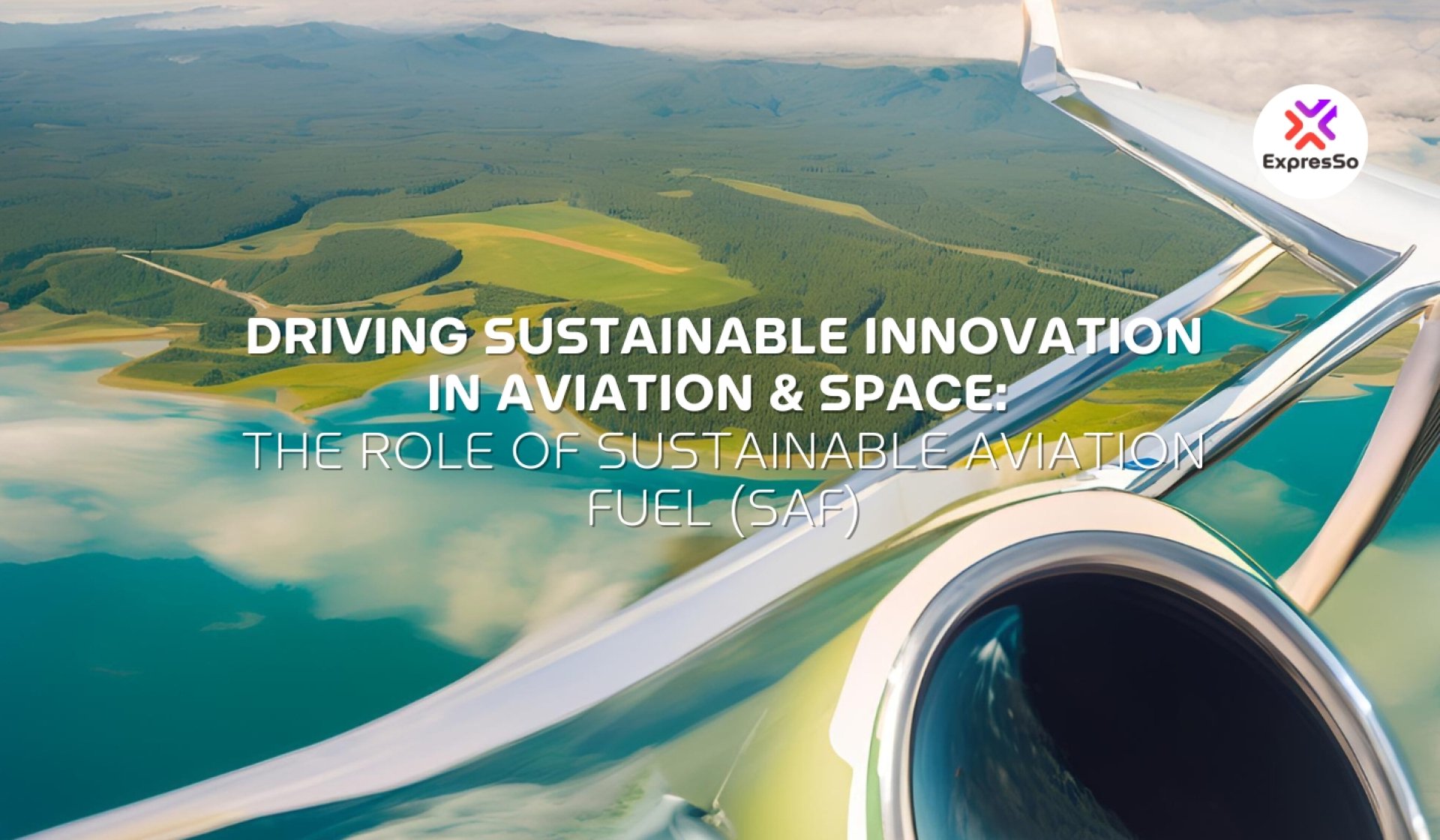Driving Sustainable Innovation in Aviation & Space

In the race toward sustainability, the aviation and space industries are stepping up their efforts to reduce their environmental impact. A key player in this shift is Sustainable Aviation Fuel (SAF), which has the potential to reduce aviation emissions by up to 80%. However, while the benefits are clear, the path to widespread adoption is fraught with challenges. Scaling production, strengthening supply chains, and securing long-term policy support are just a few of the hurdles the industry faces.
The Power of Sustainable Aviation Fuel (SAF)
SAF is derived from renewable sources such as waste oils, agricultural residues, and even carbon capture technologies. Unlike traditional fossil-based jet fuels, SAF can significantly lower the carbon footprint of air travel, making it a crucial component in the aviation industry's decarbonization strategy. Airlines and governments around the world are increasingly recognizing SAF as a key part of their sustainability goals.
Yet, despite the strong demand, production remains limited. Current SAF production accounts for only a fraction of the aviation sector's total fuel demand. The scalability of SAF production faces obstacles related to feedstock availability, production facilities, and supply chain coordination. These challenges need to be addressed urgently for SAF to become a viable solution for the aviation industry on a global scale.
CleanJoules SpaceSAF: A Step Forward in Sustainable Space Travel
While SAF is pushing the boundaries of greener aviation, the space industry is also on the lookout for sustainable fuel alternatives. CleanJoule's SpaceSAF is at the forefront of eco-friendly rocket propellants, offering significant advantages over traditional fuels. SpaceSAF is a sustainable solution designed to improve energy efficiency, boost payload capacity, and reduce the environmental impact of rocket launches.
SpaceSAF is already making waves in the commercial space sector, which is expected to surpass $11 billion by 2032. As demand for space missions continues to grow, CleanJoule's innovations are setting the stage for sustainable space exploration. By offering a higher energy density than traditional kerosene-based fuels, SpaceSAF delivers both performance and sustainability, addressing the need for eco-friendly propulsion in space missions.
A Collaborative Path to Sustainability
The future of sustainable aviation and space travel depends on collaboration. Governments, airlines, fuel producers, and technology companies must work together to overcome the challenges of scalability, policy consistency, and supply chain resilience. For example, CleanJoule, part of ExpresSo NB's portfolio, is demonstrating how innovation and sustainability can go hand in hand. The company's advancements in SpaceSAF reflect the potential of green technologies to transform multiple industries.
It's not just about fuel; it's about creating a comprehensive ecosystem that supports long-term sustainability. Whether in the sky or beyond, the aviation and space sectors must continue to collaborate, innovate, and invest in solutions that will drive the transition to a more sustainable future.
Sustainability is no longer a choice but a necessity for the future of aviation and space exploration. With innovations like SAF and SpaceSAF, the future is looking greener, but there's still much work to be done. By embracing collaboration and bold new technologies, we can ensure that both industries achieve their sustainability goals while opening the door to a new era of travel --- both on Earth and beyond.
What are your thoughts on SAF and its potential to shape a more sustainable future? How do you see innovations in space propulsion like SpaceSAF contributing to this change?
Reference : Supply Chain Digital, CleanJoule


